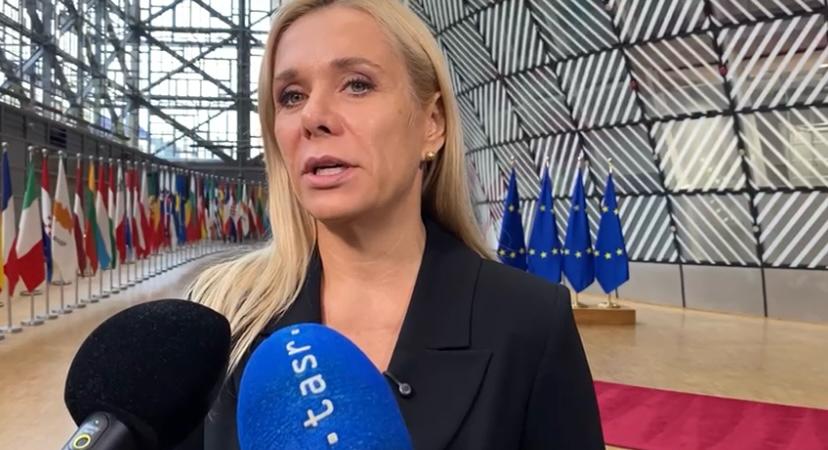Brussels – Slovakia wants to play an equal role in shaping the future European Union (EU) fund for competitiveness as other EU member states. This was stated by Minister of Economy Denisa Saková (Hlas-SD) after the meeting of the EU Council for Competitiveness in Brussels on Monday. This is reported by TASR correspondent.
Denisa Saková pointed out that the ministers focused on three main topics – the creation of the EU fund for competitiveness, the goal of banning the production of internal combustion engines in the automotive industry after 2035, and simplifying the processes of functioning of the EU single market.
She specified that the competitiveness fund should have a budget of around 450 billion euros in the upcoming programming period, while current discussions concern the establishment of the individual tools of this fund.
“We appeal for smaller states and entrepreneurs from Slovakia to also have access to these resources and not to have to overcome unnecessary administrative burdens,” she explained. She added that even smaller countries like Slovakia want to be involved in setting the evaluation rules for this fund and accessing its resources, which means not being on the sidelines and not being left “at the mercy of” larger countries.
“We want Slovakia to play a significant role in the initial debates about how the funds will be delegated, so that it has as strong a voice as others. So that our entrepreneurs do not receive only a small percentage and that consideration is given to the potential of the economy of each member state and not just based on the population size,” she described the situation.
According to her, discussions in the automotive industry are characterized by large member states and “automotive powers” like Slovakia urging the European Commission to reconsider the decarbonization targets for the automotive industry and to let the market itself decide whether to prioritize the production of electric vehicles or cars with internal combustion engines.
“We realize that the production of electric vehicles is the future, but these targets must be made realistic in terms of how individual car manufacturers can transition to the production of electric vehicles and whether they will have the investments for it,” she stated. She appreciated that the European Commission has committed to presenting a proposal on how to address this issue by the end of this year.
She welcomed discussions on the so-called “omnibus,” which is the sixth package of measures aimed at simplifying rules and reducing bureaucracy in the single market, which could save European companies 8.6 billion euros annually. However, Saková pointed out the calculations of the Danish presidency in the EU Council, according to which the proposed regulations at the Union level could increase the burden on businesses by 70 to 80 billion euros annually. This, according to her, means that the European Commission must address this issue more constructively to ensure the competitiveness of the EU and, above all, to better tailor the absorption of EU funds for small and medium-sized enterprises. (September 29)
“We want Slovakia to play a significant role in the discussions about the EU fund for competitiveness, so that it has as strong a voice as others. So that our entrepreneurs do not receive only a small percentage and that consideration is given to the potential of the economy of each member state and not just based on the population size.” Denisa Saková
 go to the original language article
go to the original language article
